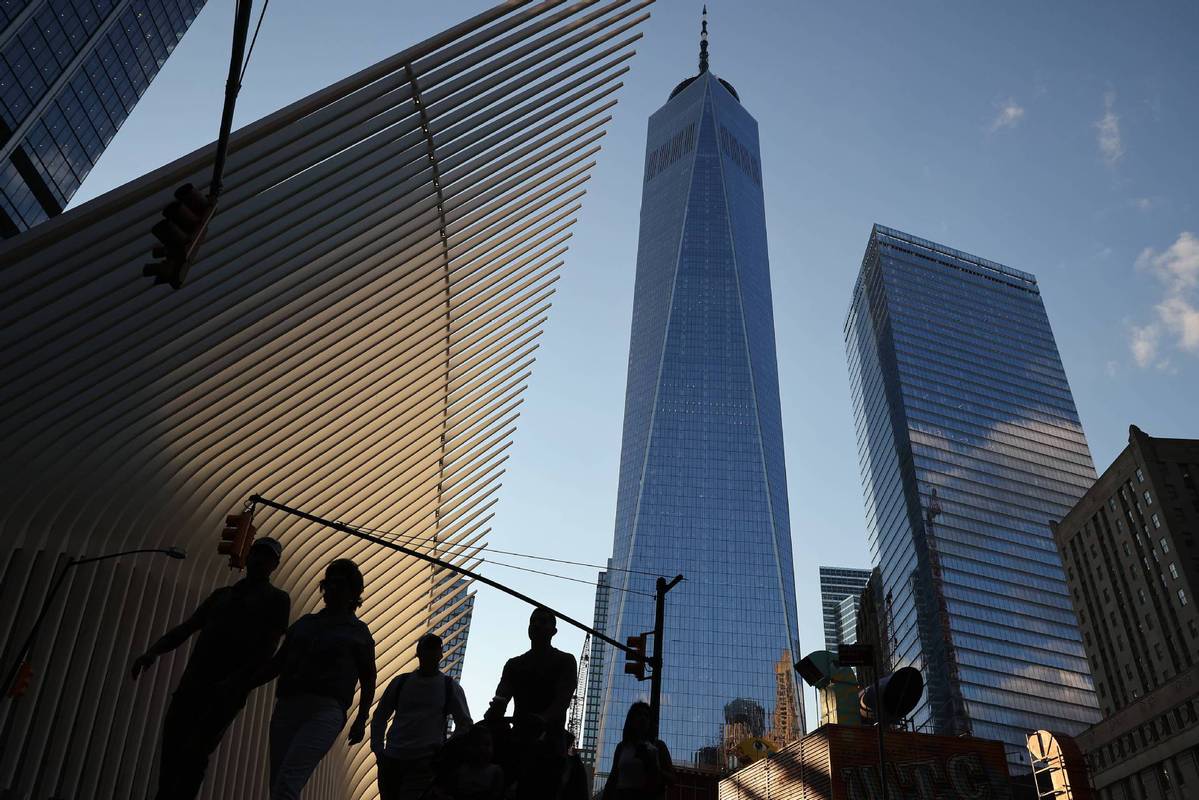20th anniversary of 9/11 a time to learn lessons


I was at home in Shanghai on the night of Sept 11, 2001, when a colleague called me to say something horrible had happened in New York — a plane had hit the World Trade Center. I switched on the satellite TV, where Fox News was broadcasting live from the scene. About 10 minutes later, the second plane flew into the tower.
I watched in disbelief as the Twin Towers went up in flames and collapsed. That included the office of China Daily Distribution Corp on the 33rd floor of Tower One. Fortunately, Sun Lingling, the company manager, survived the horrific attacks by running down the stairs thanks to her husband who immediately called her from Jamaica after watching on TV the first plane crashing into Tower One.
The next day, we consoled the two American colleagues in the office, who were naturally in deep shock. William Woo, a former editor-in-chief at the St Louis Post-Dispatch who at that time was a professor of journalism at Stanford University, was stuck in Shanghai because all the flights to the United States were cancelled. We got acquainted at a dinner a few days before 9/11 . He asked me if he could "work" in my Shanghai office, where we brought out the Shanghai Star weekly, a China Daily tabloid that is no longer published.
The Shanghai Star's 13-page coverage of the 9/11 attacks was the most substantial coverage of an incident in any one issue of a newspaper in my journalism career. It was later included in the 9/11 front page collection of Newseum.
I had taken the elevator to the top of the World Trade Center twice, once in 1994 and then in 1998. Later, when I was posted in New York, I covered many 9/11 anniversaries, the construction of the 9/11 Memorial and Museum, the growing Islamophobia in the US, and the gradual transformation of the country into a national security state.
There is no doubt that all terrorist attacks, especially those in which innocent civilians are killed, should be strongly condemned, including the 9/11 attacks that claimed some 3,000 civilians' lives.
The entire world's sympathy was with the US in 2001. Yet what the US has done in the past 20 years, from launching the war in Afghanistan to avenge the 9/11 attacks and the invasion of Iraq on the pretext of the Iraqi regime possessing weapons of mass destruction to its involvement in Syria and Libya, has caused more mayhem in other countries and regions.
The innocent civilians killed in Afghanistan and Iraq and many other Muslim countries in US bombings and drone attacks far outnumber those who perished in the 9/11 attacks. Yet they hardly hit the headlines in the Western media, let alone necessitating the construction of a memorial. Many US politicians have disdainfully described the victims as "collateral damage".
As Americans mark the 20th anniversary of 9/11 on Saturday, there is so much to reflect upon. In The Afghanistan Papers, Craig Whitlock, of The Washington Post, has exposed how US presidents and military leaders have misled the US public about the "war on terror".
"US leaders knew their war strategy was dysfunctional and privately doubted they could attack their objectives," Whitlock writes. "Yet they confidently told the public year after year that they were making progress and that victory — wining — was just over the horizon."
When former US president Barack Obama announced on May 2, 2011, that the US military has killed al-Qaida leader Osama bin Laden, many in the US thought that terrorism had been wiped out. What they didn't realize is that eradicating terrorism is far more difficult than hunting down and killing an al-Qaida leader. In fact, the more military drone strikes the US carries out and the more "mother of all bombs" it drops, the more terrorists it will likely give birth to.
US politicians like to lecture the world, but the 20th anniversary of the 9/11 attacks should also be a time to mourn all the innocent victims of US strikes and learn the lessons from the past 20 years, especially given the dramatic change in Afghanistan.
The author is chief of China Daily EU Bureau based in Brussels. chenweihua@chinadaily.com.cn
































